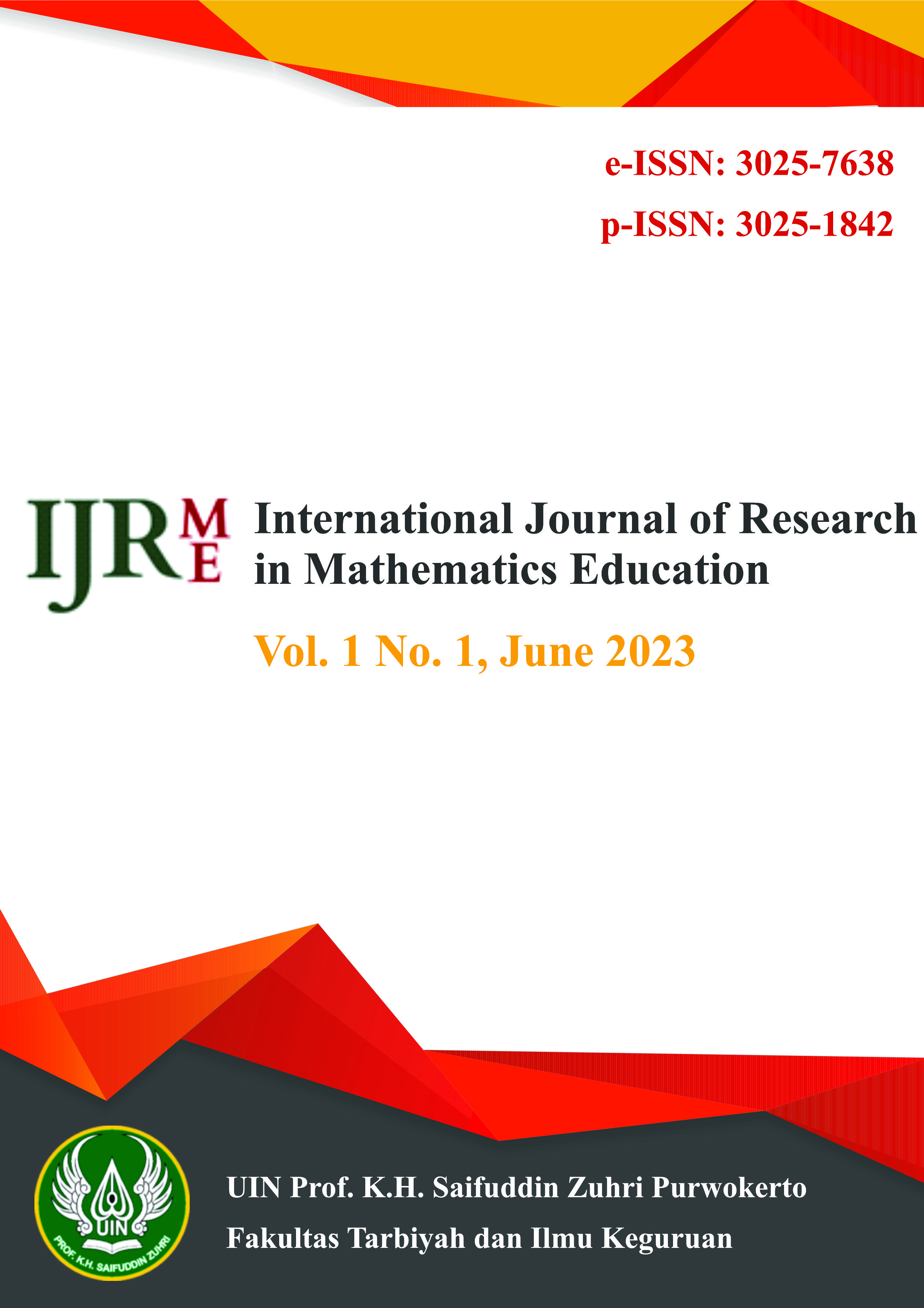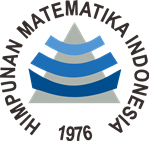Integration of GeoGebra in Problem-Based Learning to Improve Students' Problem-Solving Skills
DOI:
https://doi.org/10.24090/ijrme.v1i1.8514Keywords:
GeoGebra; problem-based learning; problem-solvingAbstract
Learning mathematics requires the development of problem-solving abilities. However, problem-solving requires additional focus, particularly in the context of schools. Therefore, alternatives are needed to teach students how to solve problems through GeoGebra in problem-based learning. The goal of this study was to thoroughly and in-depth investigate how the use of GeoGebra in problem-based learning affects students' capacity for problem-solving. Quasi-experimental research methodology is employed. The Posttest-Only Design with Nonequivalent Groups was the quasi-experimental design in this work. According to the data analysis, incorporating GeoGebra into problem-based learning significantly impacts students' ability to solve problems.References
Antohe, V. (2009). Limits of educational soft “komputer” in a critical constructive review. Computer Science Series, 7, 45–54.
Armiati. (2011). Peningkatan kemampuan penalaran matematis, komunikasi matematis, dan kecerdasan emosional mahasiswa melalui pembelajaran penemuan terbimbing. Universitas Pendidikan Indonesia.
Ary, D., Jacobs, L. C., & Sorensen, C. (2009). Introduction to research in education (8th ed.). Wadsworth, Cengage Learning.
Cazzola, M. (2009). Problem-based learning and teaching training in mathematics: The role of the problem. In M. Tzekaki, M. Kaldrimidou, & H. Sakonidis (Eds.), Proceedings of the 33rd conference of the international group for the psychology of mathematics education. PME.
Cohen, L., Manion, L., & Morrison, K. (2007). Research methods in education. Routledge.
Colton, S. (2007). Computational Discovery in Pure Mathematics. In S. Dzeroski & L. Todorovski (Eds.), Computational Discovery of Scientific Knowledge (pp. 175–201). Springer-Verlag Berlin Heidelberg.
Cornu, B. (1999). Training today the teacher of tomorrow. In C. Hoyles, C. Morgan, & G. Woodhouse (Eds.), Rethinking the mathematics curriculum (pp. 195–202). Falmer Press.
Fatima, R. (2015). Role of mathematics in the development of society. http://www.ncert.nic.in/pdf_files/Final-Article-Role of Mathematics in the Development ofSociety-NCER-.pdf
Gawlick, T. (2002). On dynamic geometry software in the regular classroom. ZDM, 34(3), 85–92.
Hardy, G. H. (1940). A Mathematician’s apology. University of Alberta Mathematical Sciences Society.
Ismaimuza, D. (2010). Kemampuan berpikir kritis dan kreatif matematis siswa smp melalui pembelajaran berbasis masalah dengan strategi konflik kognitif (Disertasi). Universitas Pendidikan Indonesia.
Karlimah. (2010). Pengembangan kemampuan komunikasi dan pemecahan masalah serta disposisi matematis mahasiswa PGSD melalui pembelajaran berbasis masalah. Universitas Pendidikan Indonesia.
Kennedy, L. M., Tipps, S., & Johnson, A. (2008). Guiding Children’s Learning Mathematics (11th ed.). Thomson Wadsworth.
Kyeong, S. C. (2010). Motivating students in learning mathematics with geogebra. Computer Science Series, 8(2), 65–76.
Leikin, R., & Zazkis, R. (2010). Teachers’ opportunities to learn mathematics through teaching. In R. Leikin & R. Zazkis (Eds.), Learning through teaching mathematics: Development of teachers’ knowledge and expertise in practice (pp. 3–22). Springer.
Leinwand, S., & Burrill, G. (2001). Improving mathematics education: resources for decision making. National Academy Press.
Ljajko, E. (2013). Development of ideas in a geogebra: Aided mathematical instructions. Mevlana International Journal of Education, 3, 1–7.
Majerek, D. (2014). Application of geogebra for teaching mathematics. Advances in Science and Technology, 8(24), 51–54.
Mason, J., & Johnston-Wilder, S. (2004). Fundamental constructs in mathematics education. RoutledgeFalmer.
Muijs, D. (2004). Doing qualitative research in education with SPSS. SAGE Publications Ltd.
Noer, S. H. (2010). Peningkatan Kemampuan berpikir kritis, kreatif, dan reflektif matematis siswa smp melalui pembelajaran berbasis masalah. Universitas Pendidikan Indonesia.
Padmavathy, R. D., & Mareesh, K. (2013). Effectiveness of problem-based learning in mathematics. International Multidisciplinari E-Journal, 2(1), 45–51.
Piaget, J. (1970). Genetic Epistemology. In Genetic Epistemology. Columbia University Press. https://doi.org/10.7312/piag91272
Prancan, K., & Wise, S. (2002). Experimental dan quasi-experimental designs for generalized causal inference. Houghton Mifflin Company.
Sabirin, M. (2011). Pengaruh pembelajaran berbasis masalah terhadap kemampuan pemecahan masalah, komunikasi, dan representasi matematis siswa smp. Universitas Pendidikan Indonesia.
Siegel, S. (1956). Nonparametric statistics for the behavioral sciences. McGraw-Hill Book Company, Inc.
So, H. J., & Kim, B. (2009). Learning about problem based learning: Student teachers integrating technology, pedagogy and content knowledge. Australasian Journal of Educational Technology, 25(1), 101–116.
Stevens, J. (2002). Applied multivariate statistics for the social sciences (4th ed.). Laurence Erlbaum Associates, Inc.
Sugandi, A. I. (2010). Pengaruh pembelajaran berbasis masalah dengan setting kooperatif tipe jigsaw terhadap pencapaian kemampuan berpikir matematik tingkat tinggi dan kemandirian belajar siswa sma. Universitas Pendidikan Indonesia.
von Glasersfeld, E. (2000). Problems of constructivism. In Radical constructivism in action: Building on the pioneering work of Ernst von Glasersfeld (pp. 3–9). RoutledgeFalmer.
Ward, J. D., & Lee, C. L. (2002). A review of problem-based learning. Journal of Family and Consumer Sciences Education, 20(1), 16–26. http://www.natefacs.org/JFCSE/v20no1/v20no1Ward.pdf
Wilson, S. M. (2003). California dreaming: Reforming mathematics education. Yale University Press.
Wu, C. J., & Chen, J. C. (2009). Enhancing students’ geometric conjectures by systematic searching. In M. Tzekaki, M. Kaldrimidou, & H. Sakonidis (Eds.), Proceedings of the 33rd Conference of the International Group for the Psychology of Mathematics Education (p. 503). PME.
Xavier, D. (2013). Better ways of teaching mathematics to the students at primary level. http://xavierdhs07.hubpages.com/hub/Better-ways-of-teaching-Mathematics-to-the-Students
Zilinskiene, I., & Demirbilek, M. (2014). Use of GeoGebra in primary math education in Lithuania: An exploratory study from teachers’ perspective. Informatics in Education, 14(1), 127–142.
Downloads
Published
How to Cite
Issue
Section
License
Copyright (c) 2023 Joko Suratno, Ida Kurnia Waliyanti

This work is licensed under a Creative Commons Attribution-ShareAlike 4.0 International License.
Authors who publish with this journal agree to the following terms:
Authors retain copyright and grant the journal right of first publication with the work simultaneously licensed under a Creative CommonsAttribution-ShareAlike License that allows others to share the work with an acknowledgment of the work's authorship and initial publication in this journal.
Authors are able to enter into separate, additional contractual arrangements for the non-exclusive distribution of the journal's published version of the work (e.g., post it to an institutional repository or publish it in a book), with an acknowledgment of its initial publication in this journal.
Authors are permitted and encouraged to post their work online (e.g., in institutional repositories or on their website) prior to and during the submission process, as it can lead to productive exchanges, as well as earlier and greater citation of published work (See The Effect of Open Access).













